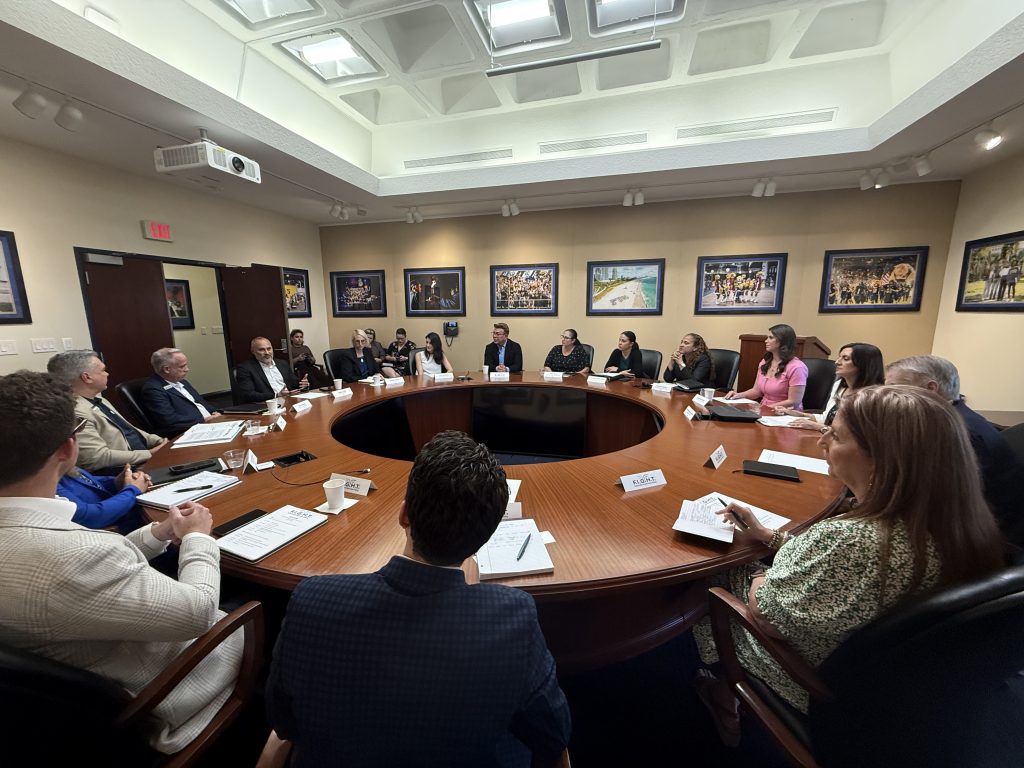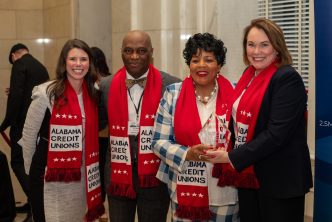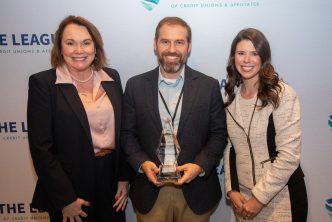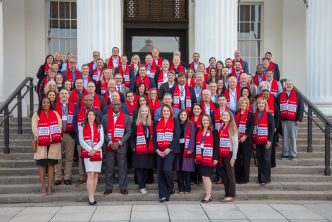Last week, The League hosted the F.I.G.H.T. (Financial Institutions Against Human Trafficking) Roundtable Discussion, bringing together senior leaders from financial institutions, law enforcement, and advocacy organizations. This roundtable underscored the importance of cross-sector collaboration in the effort to detect, disrupt, and ultimately prevent human trafficking.

The roundtable opened with remarks from The Honorable Jeanette Nuñez, Interim President of Florida International University (FIU), followed by a strategic overview of the F.I.G.H.T. initiative from Samantha Beeler, President of The League of Credit Unions & Affiliates. Beeler emphasized the financial industry’s unique role in identifying trafficking-related financial activity and providing survivors with access to safe, inclusive financial services—tools that are essential to rebuilding credit and securing long-term financial independence.
Since 2020, more than 29,000 Suspicious Activity Reports (SARs) related to human trafficking have been filed with Financial Crimes Enforcement Network (FinCEN), highlighting the growing need for coordinated, proactive detection efforts across the financial sector. With financial transactions often serving as one of the few visible indicators of exploitation, institutions are increasingly being recognized as a first line of defense.
The conversation was enriched by the participation of key state and local partners, including leaders from the Florida Department of Law Enforcement (FDLE), the Miami-Dade State Attorney’s Office, and South Florida-based survivor support organizations such as Kristi House, Camillus House, Survivors’ Pathway, and Citrus Health Network, Inc. These organizations offered critical insight into the complexities of detecting trafficking and the essential role of trauma-informed response systems.
Leaders from FIU, VyStar Credit Union, Bank of America, Miami Postal Service Credit Union, University Credit Union, Space Coast Credit Union, Suncoast Credit Union, Florida Department of Law Enforcement (FDLE), Miami-Dade State Attorney’s Office, Kristi House, Camillus House, Survivors’ Pathway, Citrus Health Network Inc., and the Florida Bankers Association contributed practical perspectives on the challenges and opportunities facing the industry. Discussion topics ranged from frontline employee training and compliance protocols to innovations in transaction monitoring and survivor-focused financial access.
The F.I.G.H.T. Roundtable made clear that meaningful progress requires alignment between financial systems, law enforcement, and service providers. Through ongoing dialogue and shared commitment, the financial sector can play a transformative role in helping to end trafficking and support those affected by it.
The conversation will continue at the upcoming ENGAGE Conference in Orlando, Florida on June 10 – 12, where financial professionals, policy leaders, and community partners will explore the next steps in building scalable, industry-led solutions.
To learn more about the F.I.G.H.T. initiative or to get involved in future efforts, please contact Christopher Hodge at Christopher.Hodge@the-league.coop.






